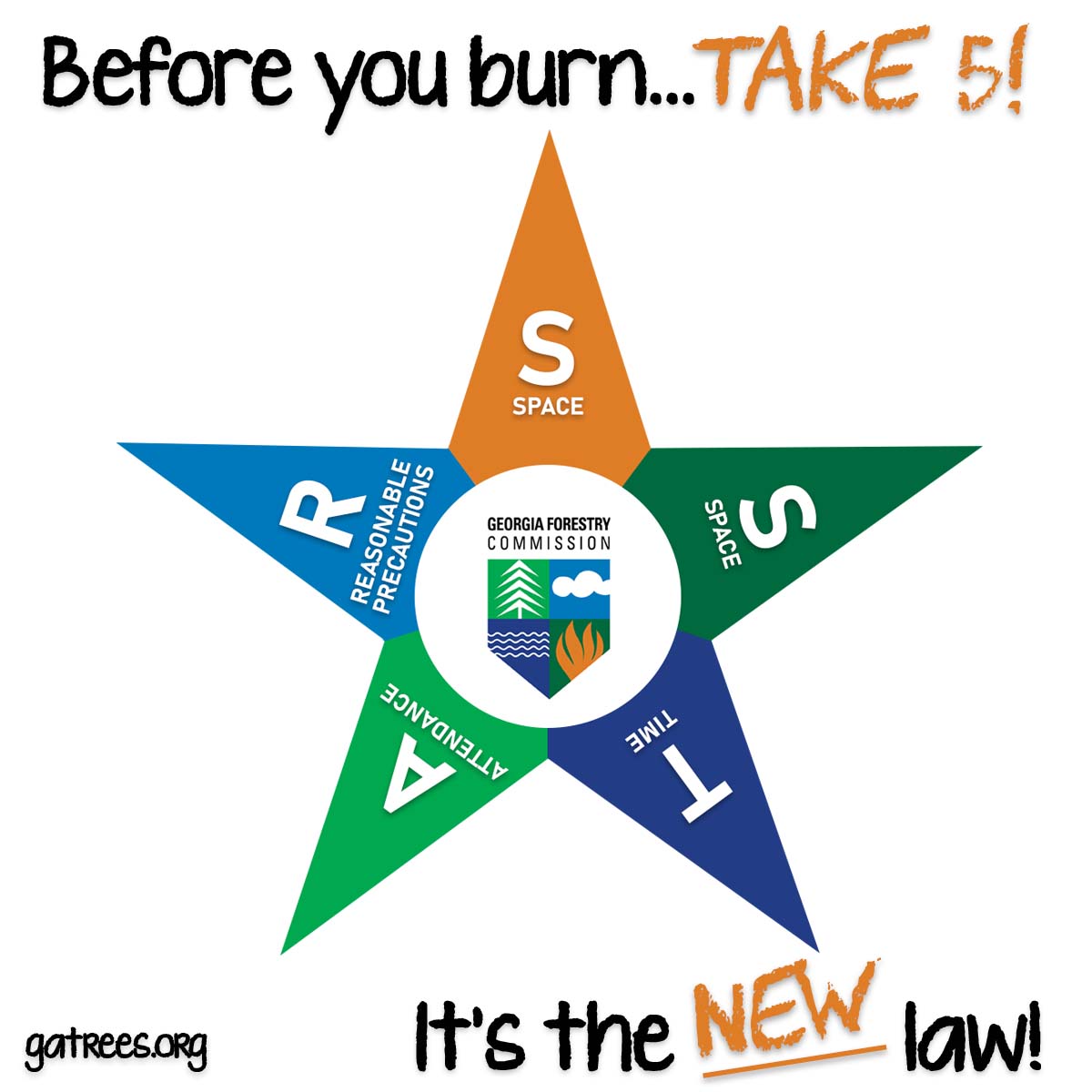* Georgia law no longer requires notification to the Georgia Forestry Commission by people planning to burn yard debris. Charges may apply if wildfire results from escaped burning and evidence show reasonable fire prevention precautions were not taken.
Weather conditions have been ideal this year for creating a busy prescribed burn season. Landowners across the state are taking advantage of the proper humidity, winds, moisture levels and more to put fire to work reducing fuel levels, enhancing wildlife habitat and aesthetics, preparing for reforestation and accomplishing many other forest management goals. With wet weather this past winter, a lot more prescribed burns are taking place now. This has forced more burns into green-up and nesting season; burns which take more planning to ensure prescribed burners can still accomplish their objectives.
The primary concern when conducting a prescribed burn must always be safety. Recently, GFC rangers responded to fires that got out of control quickly and resulted in loss of property, injuries, and tragically, a private citizen’s loss of life. It is crucial to understand that even when the rules are followed, a sudden turn of events can turn a perfect prescribed fire into a dangerous wildfire.
Of course, the first order of business in conducting a prescribed burn is creating the burn plan. Mapping out all the details is critical to achieving management goals and to being prepared for unexpected challenges. Learning those processes is mandatory. Though the pandemic impacted in-person classes over the past year, we are in the early stages of planning certified burner classes at GFC offices in Macon and Waycross. Further details will be available on our web site (GaTrees.org) when they become available.
Getting a burn permit is necessary before a fire is lit, whether it be a prescribed fire or a backyard debris pile. For burns of hand-piled vegetation (leaf and limbs, grass and shrub clippings, vegetative debris from storms and weed abatement), go to GaTrees.org or call 1-877-OK-2-BURN (652-2876) for a permit. For machine-piled vegetation and area burning (land clearing, burning off understory or acreage), call your local GFC county office at https://gatrees.org/about/county-contacts/.
Standard fire emergency tools include shovels, water and a cellphone, yet there’s another important consideration that all burners should recognize: ego. Our egos can get in the way of admitting that we’re losing control and we’re embarrassed to ask for help. Listening to that dangerous ego can truly make a life or death difference when it comes to fire, and burners must always err on the side of safety. Call 911 for assistance the moment a fire escapes or conditions change to make a dangerous scenario likely. There is no shame in being proactive for safety’s sake.


Does this apply to barrel or metal trash can vegetation fires?
Thank you for your inquiry!
Right now, yes. A permit will be needed at least until July 1st, 2021. Please check with your local GFC unit for more information regarding requirements after July 1st. https://gatrees.org/about/county-contacts/